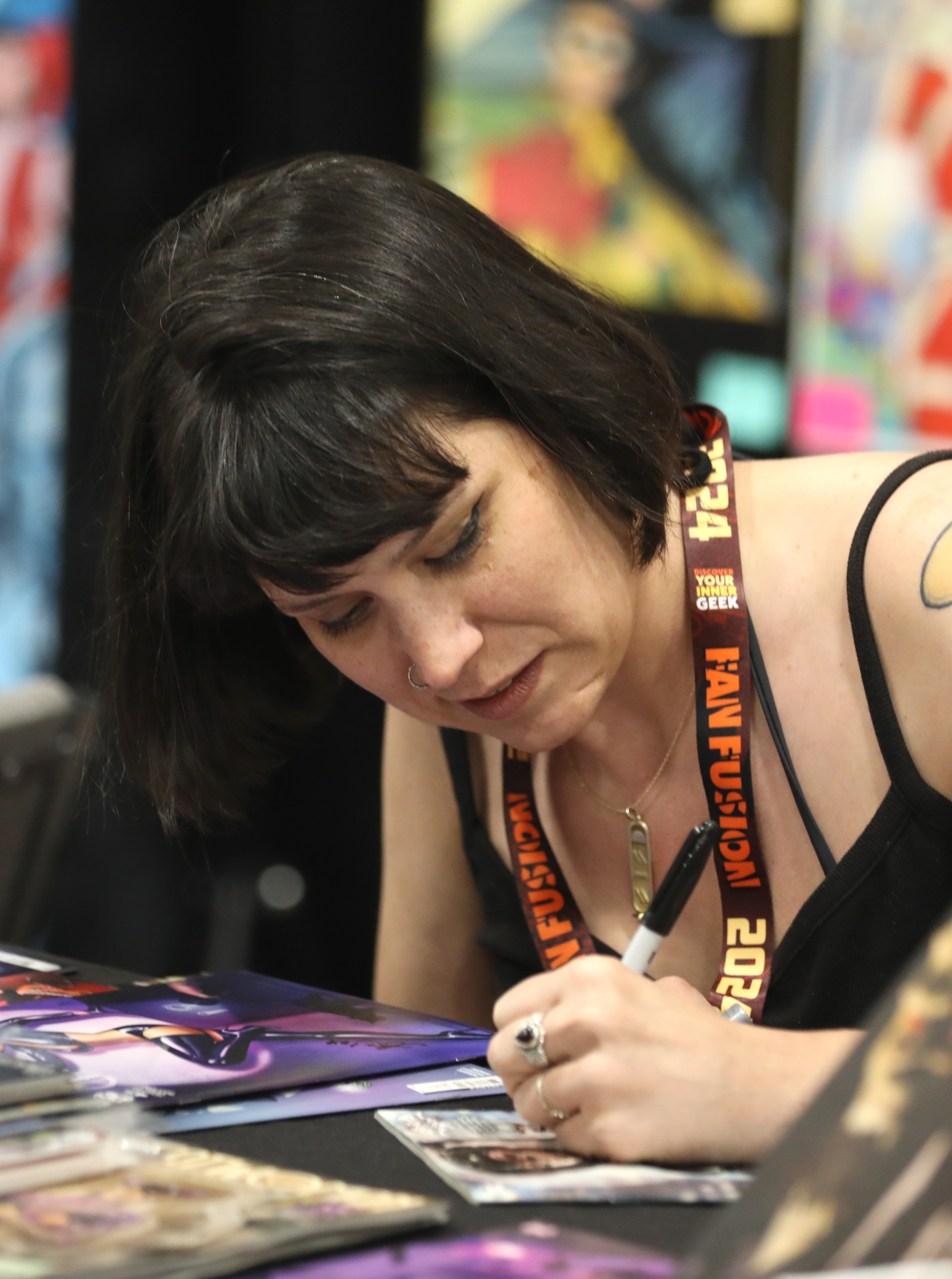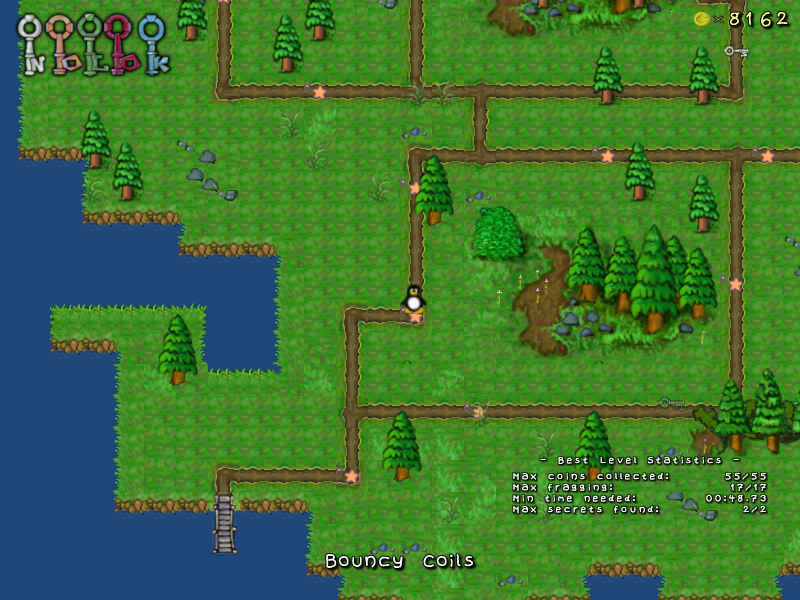|
Pocket Mortys
''Pocket Mortys'', also known as ''Rick and Morty: Pocket Mortys'', is a free-to-play role-playing video game developed by Big Pixel Studios, Tag Games and Pocket Sized Hands and published by Adult Swim Games. The game was released worldwide on January 13, 2016 for iOS and Android devices. The game is based on the television series and franchise ''Rick and Morty'' and the mechanics serve as a parody/remake of the ''Pokémon'' franchise, being updated each episode with new playable characters based on those from the wider franchise every year since. Two comic book adaptations, '' Pocket Mortys'' (2016) and ''Pocket Like You Stole It!'' (2017), written by Tini Howard, have been published by Oni Press. Description ''Pocket Mortys'' is based on the multiple timeline concept as described in episode 10 of season 1, "Close Rick-counters of the Rick Kind". The game uses a style and concept similar to the ''Pokémon'' games, with the player (Rick C-123) catching various 'wild' Mortys, ... [...More Info...] [...Related Items...] OR: [Wikipedia] [Google] [Baidu] |
Tag Games
Tag Games is a video game developer and publisher based in Dundee, Scotland. Established in 2006, it is focused on creating games for mobile, tablet and wearable platforms and was one of the first European studios to develop titles for both the iPhone and iPad. Tag is a certified member of the United Kingdom game industry trade association ''The Independent Games Developers Association'' (TIGA). History Paul Farley, Jamie Bryan and Robert Henning founded Tag Games in 2006. Paul Farley and Jamie Bryan had previously been part of development teams at DMA Design and Vis Entertainment where they worked on titles such as ''Grand Theft Auto'', ''Space Station Silicon Valley'' and ''State of Emergency''. The studio's output consists of a mix of original IP development and commissioned work. Tag's clients include Rovio, Activision, EA, Ubisoft, Namco Bandai, Channel 4, Big Fish Games and Wooga. In June 2011, the studio released its first free-to-play mobile game, Funpark Friends. ... [...More Info...] [...Related Items...] OR: [Wikipedia] [Google] [Baidu] |
Tini Howard
Tini Howard (born 1985) is an American comic book writer. She is best known for her work on ''X-Men'' titles, namely ''Excalibur (comics), Excalibur'' as well as Boom! Studios's ''Power Rangers (comics), Power Rangers'' titles. It was announced in mid-October 2021 that she would be taking over ''Catwoman (comic book), Catwoman'' at DC Comics starting with issue #39. Career As a winner of the 2013 Top Cow Productions, Top Cow Talent Hunt, Tini Howard's first comics credit was 2014's ''Magdalena (comics), Magdalena: Seventh Sacrament''. She then continued working with Top Cow Productions. She has since been a writer on comic book iterations of properties like ''Rick and Morty (comics), Rick and Morty'', ''Power Rangers (comics), Power Rangers'' and ''Barbie'', as well as created comic books like ''Assassinistas'' and ''Euthanauts'', which were published by IDW Publishing, IDW. In 2019 at the C2E2 "Women of Marvel" panel, it was announced Howard had signed an exclusive contract with ... [...More Info...] [...Related Items...] OR: [Wikipedia] [Google] [Baidu] |
Levels Up
An experience point (often abbreviated as exp or XP) is a unit of measurement used in some tabletop role-playing games (RPGs) and role-playing video games to quantify a player character's life experience and progression through the game. Experience points are generally awarded for the completion of objectives, overcoming obstacles and opponents, and successful role-playing. In many RPGs, characters start as fairly weak and untrained. When a sufficient amount of experience is obtained, the character "levels up", achieving the next stage of character development. Such an event usually increases the character's statistics, such as maximum health, magic and strength, and may permit the character to acquire new abilities or improve existing ones. Levelling up may also give the character access to more challenging areas or items. In some role-playing games, particularly those derived from ''Dungeons & Dragons'', experience points are used to improve characters in discrete experience ... [...More Info...] [...Related Items...] OR: [Wikipedia] [Google] [Baidu] |
Health (gaming)
Health is a video game or tabletop game quality that determines the maximum amount of damage or fatigue something takes before leaving the main game. In role-playing games, this typically takes the form of hit points (HP), a numerical attribute representing the health of a character or object. The game character can be a player character, a boss, or a mob. Health can also be attributed to destructible elements of the game environment or inanimate objects such as vehicles and their individual parts. In video games, health is often represented by visual elements such as a numerical fraction, a health bar or a series of small icons, though it may also be represented acoustically, such as through a character's heartbeat. Mechanics In video games, as in tabletop role-playing games, an object usually loses health as a result of being attacked. Protection points or armor help them to reduce the damage taken. Characters acting as tanks usually have more health and armor. In many gam ... [...More Info...] [...Related Items...] OR: [Wikipedia] [Google] [Baidu] |
Turn-based
Timekeeping is relevant to many types of games, including video games, tabletop role-playing games, board games, and sports. The passage of time must be handled in a way that players find fair and easy to understand. In many games, this is done using real-time and/or turn-based timekeeping. In real-time games, time within the game passes continuously. However, in turn-based games, player turns represent a fixed duration within the game, regardless of how much time passes in the real world. Some games use combinations of real-time and turn-based timekeeping systems. Players debate the merits and flaws of these systems. There are also additional timekeeping methods, such as timelines and progress clocks. Real-time In real-time games, time progresses continuously. This may occur at the same or different rates from the passage of time in the real world. For example, in '' Terraria'', one day-night cycle of 24 hours in the game is equal to 24 minutes in the real world. In a multi ... [...More Info...] [...Related Items...] OR: [Wikipedia] [Google] [Baidu] |
Overworld
An overworld or a hub world is, in a broad sense, an area within a video game that interconnects all its levels or locations. They are mostly common in role-playing games, though this does not exclude other video game genres, such as some platformers and strategy games. Description An overworld or hub world is an area within a video game which connects its other levels or locations. The term can also refer to a safer area which players frequently return to, like a town. They are common in adventure games, role-playing games (RPGs), platformers, and dungeon crawlers. Multiplayer games have hub worlds which serve as a centre for interaction with other players and non-player characters (NPCs). Hub worlds in single-player games are often used for worldbuilding, while hubs in multiplayer games are more purposed for storage for weapons and equipment, as well as restocking supplies. They serve as safe areas in between dangerous areas and quests where players can take on more passi ... [...More Info...] [...Related Items...] OR: [Wikipedia] [Google] [Baidu] |
Overhead Perspective
A variety of Computer graphics, computer graphic techniques have been used to display video game content throughout the history of video games. The predominance of individual techniques have evolved over time, primarily due to Graphics hardware, hardware advances and restrictions such as the processing power of Central processing unit, central or graphics processing units. Text-based Some of the earliest video games were text games or text-based games that used character set, text characters instead of bitmapped or vector graphics. Examples include Multi-user dungeon, MUDs (''multi-user dungeons''), where players could read or view depictions of rooms, objects, other players, and actions performed in the virtual world; and roguelikes, a subgenre of role-playing game (video games), role-playing video games featuring many monsters, items, and environmental effects, as well as an emphasis on procedural generation, randomization, replayability and permanent death. Some of the earli ... [...More Info...] [...Related Items...] OR: [Wikipedia] [Google] [Baidu] |
Third-person View
In video games, third-person (also spelled third person) is a graphical perspective rendered from a fixed distance behind and slightly above the player character. This viewpoint allows players to see a more strongly characterized avatar and is most common in action games and action adventure games. Games with this perspective often make use of positional audio, where the volume of ambient sounds varies depending on the position of the avatar. Camera systems There are primarily three types of camera systems in games that use a third-person view: the "tracking camera systems" in which the camera simply follows the player's character; the "fixed camera systems" in which the camera positions are set during the game creation; and the "interactive camera systems" that are under the player's control. Simple tracking cameras follow the characters from behind, and were common in early 3D games such as '' Crash Bandicoot'' or ''Tomb Raider'' since it is very simple to implement. Howeve ... [...More Info...] [...Related Items...] OR: [Wikipedia] [Google] [Baidu] |
Entertainment Weekly
''Entertainment Weekly'' (sometimes abbreviated as ''EW'') is an American online magazine, digital-only entertainment magazine based in New York City, published by Dotdash Meredith, that covers film, television, music, Broadway theatre, books, and popular culture. The print magazine debuted on February 16, 1990, in New York City, and ceased publication in 2022. Different from celebrity-focused publications such as ''Us Weekly'', ''People (magazine), People'' (a sister magazine to ''EW''), and ''In Touch Weekly'', ''EW'' primarily concentrates on entertainment media news and critical reviews; unlike ''Variety (magazine), Variety'' and ''The Hollywood Reporter'', which were primarily established as trade magazines aimed at industry insiders, ''EW'' targets a more general audience. History Formed as a sister magazine to ''People'', the first issue of ''Entertainment Weekly'' was published on February 16, 1990. Created by Jeff Jarvis and founded by Michael Klingensmith, who serve ... [...More Info...] [...Related Items...] OR: [Wikipedia] [Google] [Baidu] |
Dan Harmon
Daniel James Harmon (born January 3, 1973) is an American television writer and producer. He is best known as the creator and producer of the NBC sitcom ''Community (TV series), Community'' (2009–2015), creator and host of the comedy podcast ''Harmontown'' (2012–2019), co-creator of the Adult Swim animated sitcom ''Rick and Morty'' (2013–present) and its Rick and Morty (franchise), subsequent franchise along with Justin Roiland, co-founder of the alternative television network and website Channel 101 along with Rob Schrab, and creator of Fox Broadcasting Company, Fox animated sitcom Krapopolis (2023–present). Early life Daniel James Harmon was born in Milwaukee, Milwaukee, Wisconsin, on January 3, 1973. He graduated from Brown Deer High School in Brown Deer, Wisconsin, and attended Marquette University. He briefly attended Glendale Community College (California), Glendale Community College in Glendale, California, an experience which would later form the basis of his sitc ... [...More Info...] [...Related Items...] OR: [Wikipedia] [Google] [Baidu] |
Justin Roiland
Mark Justin Roiland (born February 21, 1980) is an American voice actor, animator, writer, and producer. He co-created the Adult Swim animated sitcom ''Rick and Morty'', for which he voiced the protagonists Rick Sanchez and Morty Smith from 2013 to 2022, as well as Hulu's ''Solar Opposites'', in which he voiced the main character, Korvo, from 2020 to 2022, until both networks severed ties with him in 2023. He had also voiced Earl of Lemongrab in ''Adventure Time,'' Blendin Blandin in ''Gravity Falls'', and Oscar in ''Fish Hooks''. He founded the animation studio Justin Roiland's Solo Vanity Card Productions! and the video game studio Squanch Games, though he resigned from the latter in 2023. In early 2023, Roiland was dismissed from most of the companies he was working with due to accusations of domestic violence and abuse. The charges were later dismissed due to insufficient evidence, but in September 2023 new allegations of sexual assault were reported against him. Early life ... [...More Info...] [...Related Items...] OR: [Wikipedia] [Google] [Baidu] |





